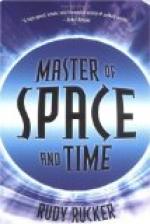Yet but a small part of the public could attend the exposition and actually test the telephone for themselves. Many of these believed that it was a hoax, and general skepticism still prevailed. Business men, though they were convinced that the telephone would carry spoken messages, nevertheless insisted that it presented no business possibilities. Hubbard, however, had faith in the invention, and as Bell was not a business man, he took upon himself the work of promotion—the necessary, valuable work which must be accomplished before any big idea or invention may be put at the service of the public. Hubbard’s first move was to plan a publicity campaign which should bring the new invention favorably to the attention of all, prove its claims, and silence the skeptics. They were too poor to set up an experimental line of their own, and so telegraph lines were borrowed for short periods wherever possible, demonstrations were given and tests made. The assistance of the newspapers was invoked and news stories of the tests did much to popularize the new idea.
An opportunity then came to Bell to lecture and demonstrate the telephone before a scientific body in Essex. He secured the use of a telegraph line and connected the hall with the laboratory in Boston. The equipment consisted of old-fashioned box ’phones over a foot long and eight inches square, built about an immense horseshoe magnet. Watson was stationed in the Boston laboratory. Bell started his lecture, with Watson constantly listening over the telephone. Bell would stop from time to time and ask that the ability of the telephone to transmit certain kinds of sounds be illustrated. Musical instruments were played in Boston and heard in Essex; then Watson talked, and finally he was instructed to sing. He insisted that he was not a singer, but the voices of others less experienced in speaking over the crude instruments often failed to carry sufficiently well for demonstration purposes. So Watson sang, as best he could, “Yankee Doodle,” “Auld Lang Syne,” and other favorites. After the lecture had been completed members of the audience were invited to talk over the telephone. A few of them mustered confidence to talk with Watson in Boston, and the newspaper reporters carefully noted down all the details of the conversation.
The lecture aroused so much interest that others were arranged. The first one had been free, but admission was charged for the later lectures and this income was the first revenue Bell had received for his invention. The arrangements were generally the same for each of the lectures about Boston. The names of Longfellow, of Holmes, and of other famous American men of letters are found among the patrons of some of the lectures in Boston. Bell desired to give lectures in New York City, but was not certain that his apparatus would operate at that distance over the lines available. The laboratory was on the third floor of a rooming-house,




